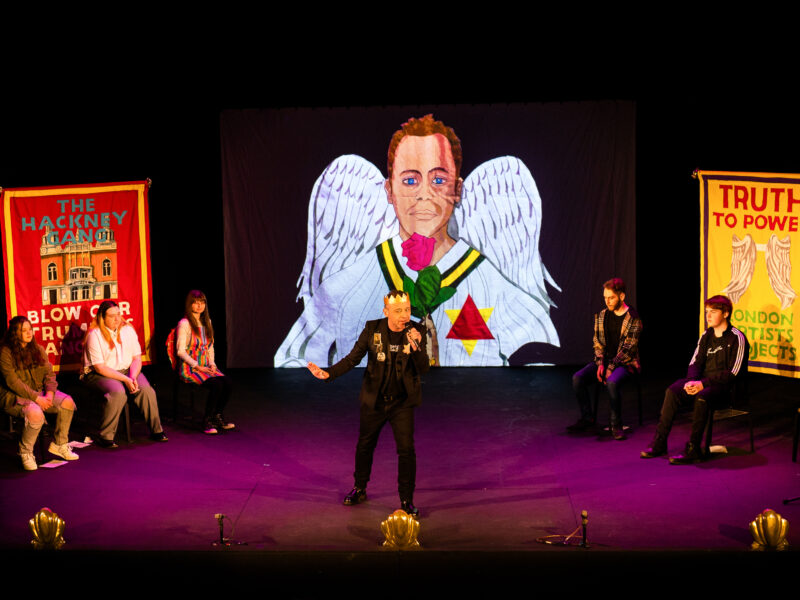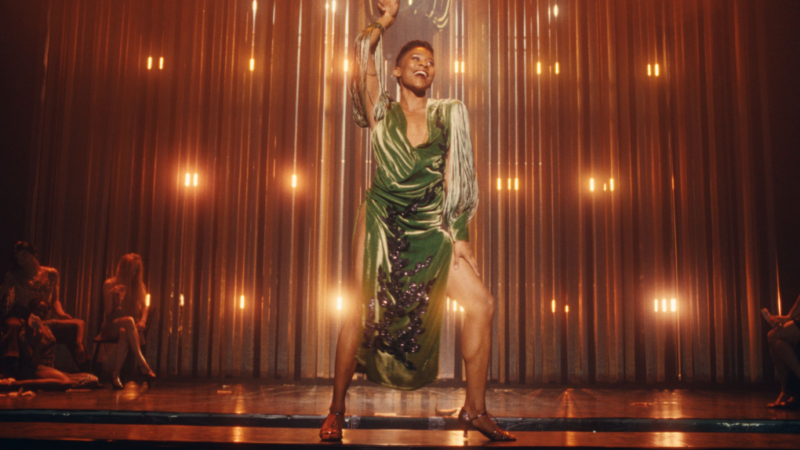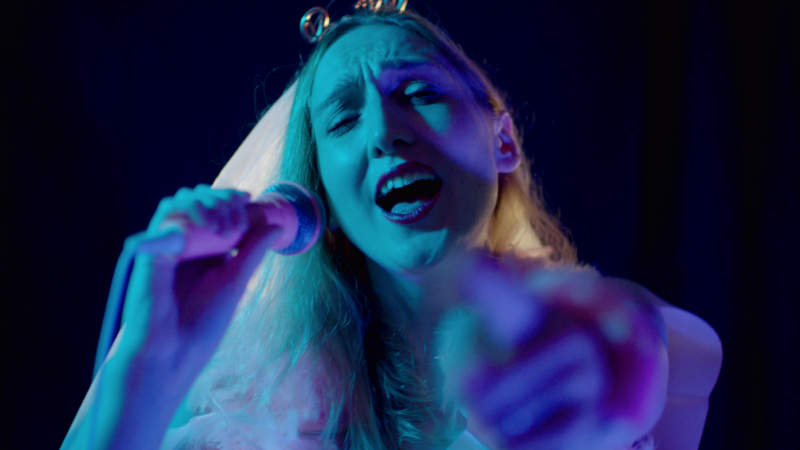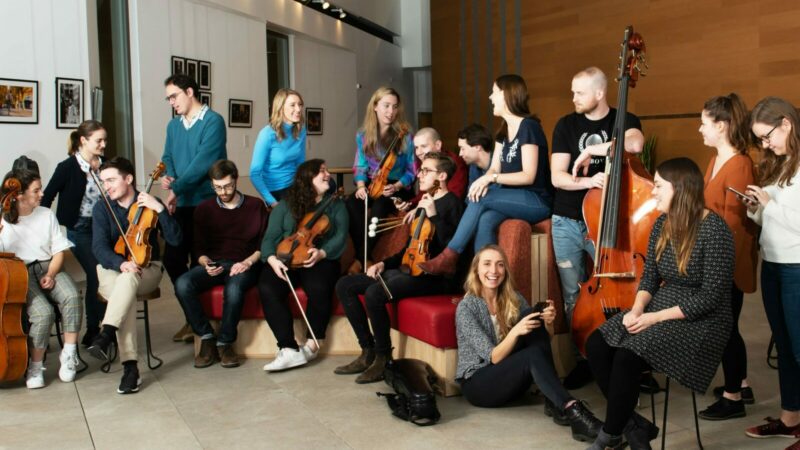Truth to Power Cafe
Jeremy Goldstein is Founder and Director of London Artists Projects and he, together with Theatre and Digital Director, Jen Heyes, spoke in 2022 about their collaborative effort to bring his The Truth to Power Café (TTPC) stage show to live audiences online. Jeremy works with participants to write and perform monologues in which they speak the truth to those they feel have power over them.

Capturing the truth
Jeremy approached the transition from live to digital cautiously: ‘Initially I resisted putting the work online as I am old-school and believe that theatre is an ephemeral live artform. I was concerned about how we could capture the feeling you get in the room when listening to first time participants speak their truth. I was also keen to protect participants’ privacy and I didn’t want to skew things by putting their speeches on socials in an ad hoc way.’
Jen understood these concerns and was sensitive in her approach: ‘We are often helping people to navigate a certain point in their lives – it felt exposing to distribute things digitally and share the work beyond the people in the room.’ Through collaboration over a number of years, Jeremy and Jen have learned to trust each other to fulfil their respective roles. Jeremy explains how they were able to tackle any issues which arose in the project: ‘We’re very fluid and dynamic and we make changes. We have built up this rapport. What Jen has done with our work is to make sure that it’s ordered enough to ensure it’s read in the right way.’
Translating from stage to screen
Jen: ‘There’s a theatre language and a digital language that you have to be aware of if you are going to communicate effectively. We think of it as a cinematic theatre which is different from both theatre and digital and it has an epicness of its own.’
In order to maintain the intimacy of a theatre space and to not let the cameras distract Jeremy and the performers, Jen adapted her live theatre style of directing: ‘I said don’t move about so much, let the cameras do the work. Don’t try and find a lens to speak into; let them follow and find you. We found that the camera loves Jeremy and we were able to play with scale – which digital allows you to do – Jeremy could be enormous on stage.’
Jeremy stresses the importance of maintaining connection with the audience:
‘The intention of what it’s going to be is really important. Even in the live shows, wherever we were, it has to be a really authentic representation of the time and place and participants on that day.’ The transition to digital performance involves making creative choices and Jeremy and Jen see the live streams as adaptations of the theatre work. Jen elaborates: ‘If you’re going to do a digital version of a traditional play, for example, then it needs a different script, a script that is about placing yourself in the audience and asking what they want to experience. Everyone says don’t film the play and just put that out and they’re right, it doesn’t work. You need to step back and figure out what makes it work in this medium.’
Trying something new
The casting of participants is bespoke, as Jeremy explains, ‘We have a framework which is a guide to recruiting which we send to the venues. In one instance, we worked with a Professor at Montgomery College in Maryland and his students took part in it. You still create a theatre company and everybody is very much in control of their own self and their own words.’
The pilot was created with help from funding by West Australian Arts and was a useful introduction for them in the art of digitising their live work. The event was not all live as Jeremy explained, ‘We showed the films, first my film and then the participants in the room. There were three different elements all combining to make a stream.’ Jen was unsure about working this way at first, ‘We had 200 people in the audience. I learnt a lot – for example that we need to have the audience mic’d. That could have lifted the sound substantially and maybe we could have had a support act.
Then in March 2020 the Covid-19 crisis saw TTPC lose £200K worth of dates in 48 hours. They quickly established a digital platform for participants to engage in the project from their own homes, receiving over 100,000 views on Facebook. Jeremy and Jen have continued working together to enlarge the reach of TTPC and have streamed events from 5 different countries and cities as diverse as Rotherham, Sydney and Singapore with Jen directing the participants from her home in Liverpool.
Of course, any new venture brings lessons and Jen reflects on what could have worked better, ‘ We’re quite staccato and digital can sometimes create pauses and delays. There still needs to be room for experimentation, people need time to come together – give an artist a space and resource to do something fabulous, and they will. And venue to venue there are massive changes – some have never streamed a show, others have and often you need to bring a rig in. This is one of the challenges in advance of budgeting and planning.’
Initial concerns about translating an in-person intimate theatre experience to digital have been overcome and TTPC continues to expand their reach. Jeremy’s intention to connect with audiences and to give a platform to the participants remains at the heart of the work. Jen is optimistic about the role film and live steam have played in this aim: ‘For me the power of digital is being able to go beyond the theatre walls. And connection – the power of digital to connect knows no bounds.’
Find out more about Truth to Power Cafe
How useful was this resource?




